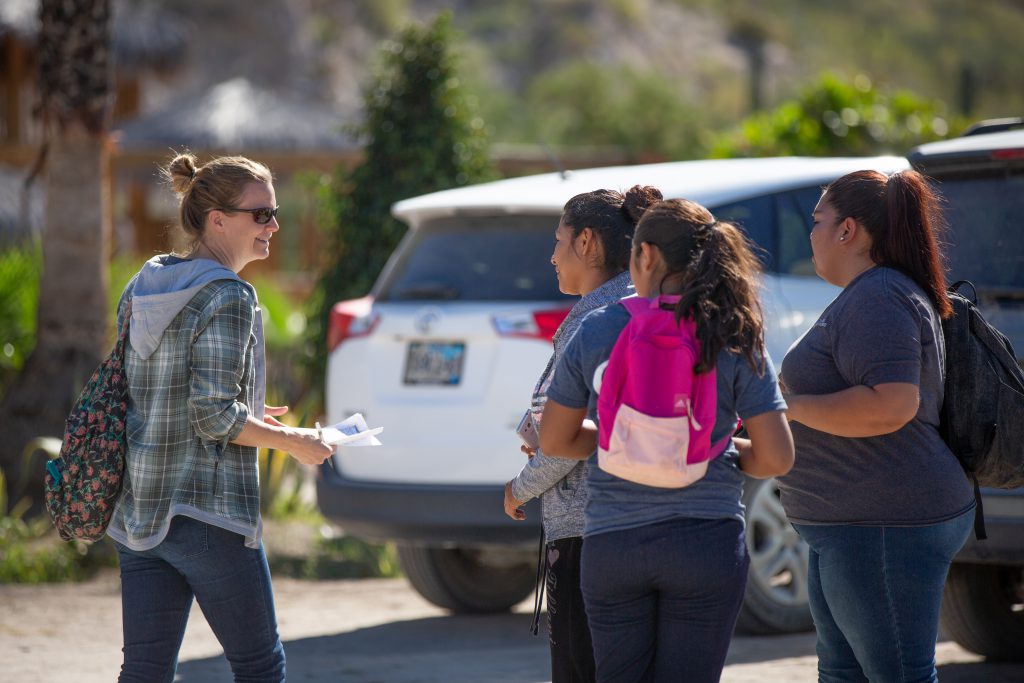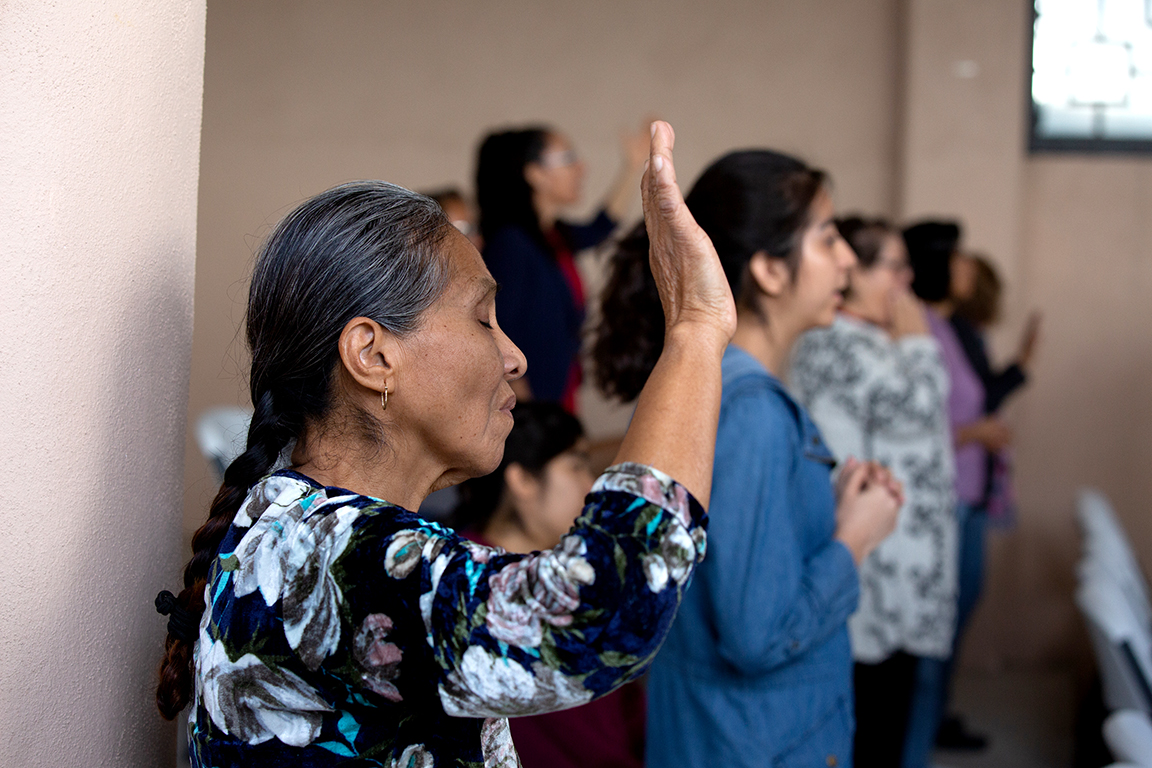
Missionary Life, Missions Resources
The Enneagram for Missionaries: Tips for Overseas Life
October 26, 2020
by Heidi Chupp

I don’t even recognize myself anymore, Christine thought to herself. Have I changed this much?
Christine knew that she was going through an intensely stressful season of life — starting a new business with her new husband, while navigating a new culture and new language in a new country. She’d been preparing for the external upheaval.
But what she didn’t expect was the upheaval she saw in herself.
Some of her actions and thoughts surprised and disturbed her: Anger at her circumstances, and her excessive attempts to control them. Difficulty in expressing her feelings and needs. Frustration at her limited ability to be useful and help others, something that usually came naturally and easily.
“[I] didn’t really feel like me,” Christine says.
And then she discovered a tool that brought clarity to her confusion.
“I had an epiphany moment,” Christine says. “The core of who I am didn’t change; I was in a season of stress and handling it in unhealthy ways.”
A Life-Giving Tool
The tool Christine discovered was the Enneagram, a personality typing system that describes human nature in nine main ways.
At its very essence, the Enneagram is all about motivation, what drives a person to do what they do. Each of the nine personality types has a different core motivation.
In stress, each number takes on the unhealthy characteristics of another number. And in times of security and thriving, each number displays the healthy attributes of a different number. The ultimate goal is for each individual to grow toward integrating the healthy responses of all nine types.

Learning your Enneagram type can help you understand how you handle stress and how to better communicate with teammates.
The Enneagram gave Christine words to communicate to herself and to others what was happening inside her. She not only gained insight about the unhealthy areas of her life, but she learned to process her many transitions in productive ways.
“What I love most about the Enneagram,” she recently wrote, “is that it gives me a language for expressing things I already think and emotions I already feel. It helps me understand myself and gives me the tools to feel understood by others.”
Today, Christine shares the clarity she’s received from the Enneagram with expats just like herself. Now a certified Enneagram coach, she sends out a monthly newsletter and posts on social media under @EnneagramfortheExpat and with the hashtag #EnneagramfortheExpat.
A growing number of her readers are missionaries seeking to understand themselves as they navigate life abroad.
Linda,* a regional coordinator for TEAM member care, sees the Enneagram as both practical and pivotal for missionaries navigating the unique aspects of expat life.
“I think that it has great impact for spiritual growth, to know yourself better and what your motivations are — really — and to be able to take those things to the Lord,” Linda says.
What the Enneagram Means for Missionaries
So what can the Enneagram look like in overseas missionary life?
First, if you’re new to the Enneagram, you might want to check out this beginner’s guide. Christine also recommends this free assessment to explore what your type might be. She warns that no assessment will give a perfect result, but it can give you a strong starting point.
For those already familiar, Christine says the Enneagram can provide key insights for missionaries of all types.
One – The Reformer
Ones are often called “Reformers” and their primary motivation is to be good, to have integrity and to be balanced. In culture stress, these natural rule-followers may feel upheaval while learning the rules of a new society (and probably breaking a few of those rules, to their great distress). As Ones learn a new language, their challenge will be to quiet their inner critics. Asking others for help in understanding new social cues and expectations will go a long way for them. When Ones are in a place of health, they take themselves less seriously and bring stability to their community.
Two – The Helper
The core motivation for Twos, the “Helpers,” is to be loved and appreciated. Their desire to develop connections with people in their host country will energize their language learning. Because their options for being useful in their new surroundings are initially so limited, Twos may feel a low sense of self-worth. But when they learn to communicate their own needs and set healthy boundaries, Twos have the freedom to generously give their time and energy, and they become an indispensable part of the missionary team.
Three – The Achiever
Threes, the “Achievers,” desire more than anything to be admired, valued and respected. Culture stress can expose their inexperience or lack of knowledge, and they will naturally try to numb these triggers or to procrastinate. Their instinctive drive to succeed will help with language learning — until it gets derailed by feelings of incompetence. Threes grow toward health when they remember that they are more than their accomplishments, and when they give themselves time and space in their new culture. Their passion is a gift to their communities.
Four – The Individualist
Fours are also known as “Individualists” and are primarily motivated by finding significance in their unique identity. Learning a new language may at first feel mechanical to Fours as they struggle to find ways to express themselves deeply. They may feel a heightened sense of anxiety in culture stress, worrying that new acquaintances will soon discover their defects. But when Fours feel secure and grounded, they’re able to express their creativity and add great beauty to the world around them.
Five – The Investigator
Fives, the “Investigators,” deeply desire to be capable and competent. When learning a new language, Fives are naturals at soaking up new information, so they work best when they can set their own pace and have the freedom to learn in a style that fits them. The stress of a new culture may cause them to withdraw or close themselves off. But when Fives have the chance to spend some time alone and refuel, they can offer valuable insights and wisdom to their community.
Six – The Loyalist
Sixes, also known as “Loyalists,” are motivated by security, support and guidance. The stress from living in new and still unpredictable surroundings can trigger all kinds of worst-case scenarios for Sixes. The pressure to learn a new language quickly can add even more anxiety. When Sixes are in a healthy place, their grip on control will loosen and they will feel more spontaneous and relaxed. Their natural sense of responsibility is a great gift to those around them.
Seven – The Enthusiast
Sevens, the “Enthusiasts,” are primarily motivated by having their needs met and feeling satisfied. Arriving in a new country may at first be an exciting adventure for Sevens, but at some point, the honeymoon phase ends and they may become more rigid. They may feel frustrated at the uncomfortable emotions that rise during the language learning process. When Sevens are settled in their new surroundings, they find contentment in both the ordinary and the special moments of life. Their ability to bring others together is a meaningful gift to their community.
Eight – The Challenger
The core motivation for Eights, known as “Challengers,” is to protect themselves and to be in control of their life. For an Eight, culture stress means entering into a place of weakness, and they may quickly resort to anger or assertiveness in an attempt to gain back control. Learning a new language is uncomfortable for the same reasons, but if Eights lean into that discomfort, it may drive them to become proficient. When Eights are in a healthy place, they don’t always feel the need to take the lead, and can offer the world both their passion and their vulnerability.
Nine – The Peacemaker
Nines, the “Peacemakers,” are primarily motivated by inner peace of mind and stability. They may feel overwhelmed by the language-learning process and slow down their efforts and progress. Living in a new culture can cause all kinds of tension and conflict to rise up, exactly what Nines try to avoid. But as they learn the value of taking risks, they grow in health and can be a unifying force in group settings.
Looking at the Enneagram with Jesus

Like any tool, the Enneagram needs to be used with a heart pointed toward Christ. Reflect on it with Him and with your mission teammates.
As Christine continued to dig deeper into the Enneagram, she discovered that she was a Two, “the Helper.”
Her anger, her desire to control, her inability to truly know what she needed — these were behaviors and feelings coming from the unhealthy side of an Eight. As she grew to understand herself, she also grew in health, displaying the attitudes and actions of a healthy Four: compassionate, creative, emotionally aware and serving without any strings attached.
This understanding has deepened Christine’s faith, allowing her to contribute to a series of Enneagram-based devotionals.
Linda says that personal spiritual growth is just the beginning of the benefits that missionaries can gain from exploring the Enneagram. She sees the positive impact expanding out to relationships too.
“As we grow individually, that will help us in any relational dynamic,” she explains. “If I’m using [the Enneagram] to grow, I’m going to be a healthier teammate.”
To “look at it with Jesus” through the entire process is key, she says. That’s what brings the Enneagram to a whole new level.
*Name changed for safety reasons

